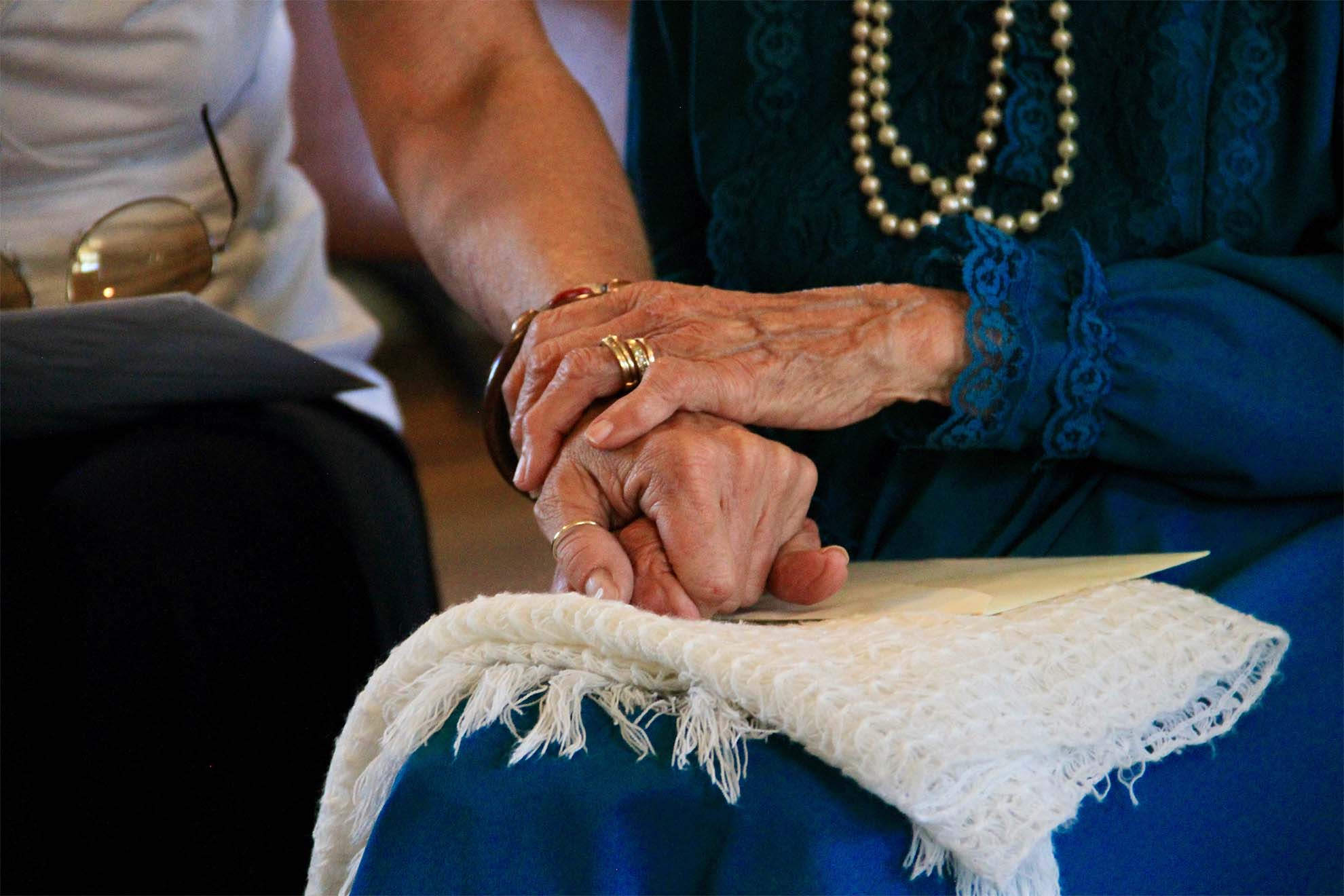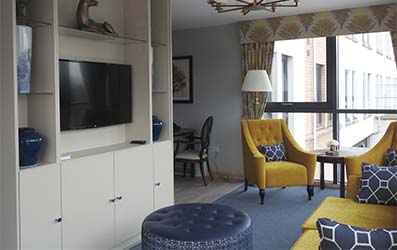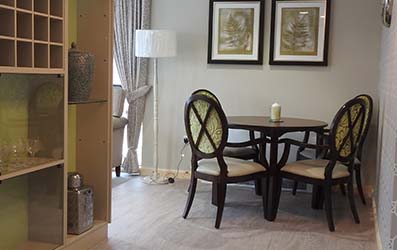When Should Someone With Dementia Move into a Care Home?

Dementia is a progressive condition that adversely affects an individual's cognitive abilities, including memory, communication, and decision-making skills. As the disease advances, independent living and the management of daily activities become increasingly challenging for individuals with dementia. Often, transitioning to a care home becomes the optimal choice to ensure their safety and overall welfare. However, making such a decision is complex and necessitates thoughtful deliberation of various factors.
Below are some things to consider when making the decision on whether a person living with dementia should move into a care home:

Safety
Ensuring the safety of individuals with a dementia diagnosis is one of the primary reasons why moving them into a care home may be beneficial. As the condition progresses, cognitive decline can result in increased forgetfulness and confusion, putting the person at risk of accidents or wandering. Instances such as leaving appliances on, forgetting to secure the home, or becoming disoriented and straying away from familiar surroundings can pose significant dangers. In a care home setting, dedicated care teams are specifically trained to address these situations. With around-the-clock supervision and specialised care, care homes offer a secure environment where healthcare professionals can attend to the needs of residents.
Social Isolation
Dementia often brings about feelings of loneliness as individuals become withdrawn and lose interest in socialising and hobbies. This isolation can contribute to a decline in emotional well-being, leading to heightened loneliness and depression. However, within a care home, residents have valuable opportunities to reduce these effects. They can engage in social interactions with other residents, participating in group activities and events specifically designed to enhance social interaction. By being part of a care home community, individuals with dementia can alleviate feelings of loneliness, stay engaged, and cultivate meaningful relationships with others, enhancing overall emotional well-being.
Burnout for Caregivers
Caring for someone with dementia can be an all-encompassing responsibility, often taking a toll on the physical and emotional well-being of the caregiver. The demanding nature of the role can lead to burnout, exhaustion, and overwhelming stress, making it challenging to maintain a high standard of care for their loved one's needs.
Moving to a care home provides caregivers with a much-needed break from the constant demands of caregiving, enabling them to recharge and focus on their own physical and emotional health. For family members who have been caring for their loved ones at home, there may come a point where they are no longer able to meet the increasing level of personal care required due to a loss in mental capacity, therefore a care home can offer a higher level of care, ensuring the individual's safety, health and well-being.
Financial Considerations
The cost of care homes can vary depending on factors such as the required level of care, location, and provided amenities. Typically, care home fees are covered through self-funding, which involves using an individual's property and financial affairs. However, in certain cases, financial assistance may be available from the local authority based on a personal financial assessment.
Financial support for nursing homes or care home fees can be obtained in specific situations. One option is to apply for means-tested assistance from the local council. This involves assessing the individual's income and assets. The local authority provides contributions towards care home fees only if the income and assets fall below a certain threshold.
Another possibility is to apply for NHS Continuing Healthcare funding. This type of funding is intended for individuals experiencing a severe decline in health. A care needs assessment is conducted by healthcare professionals to determine eligibility for this funding.
Finding the Right Care Home
At what stage should someone with dementia go into a care home? There is no straightforward answer due to individual circumstances. The decision of moving a loved one into a care home is one that should be thoughtfully considered, and you should involve the individual with dementia in the decision-making process as much as possible. Here are some things to keep in mind when discussing a care home move:
Communicating With Your Family Member
When communicating with a person with dementia, it is crucial to use clear and simple language. They may have difficulty processing information and making decisions, so it's important to be patient and allow plenty of time for questions and expressions of concerns. In cases where a person's dementia has progressed to a point where they lack the mental capacity to make decisions, such as in the later stages of the disease, it is advisable for a family member to obtain lasting power of attorney.
Obtaining lasting power of attorney means an individual is granted the legal power to make decisions on behalf of the person with dementia if it is believed to be in their best interests. This legal arrangement ensures that important decisions regarding their welfare, health, and financial matters can be made appropriately and in accordance with their needs. It is an important step in safeguarding the well-being and ensuring that the person's interests are protected when they are no longer able to make decisions independently due to their advancing dementia.
Choices
While individuals living with dementia may have limitations in making decisions, it's essential to involve them in the process and provide them with choices. Despite their cognitive challenges, it's important to ask for their preferences and opinions regarding a care home. Engaging them in the decision-making process can help maintain a sense of autonomy and dignity. One way to involve them is by asking what they would like to see in a care home. Consider their preferences for the environment, amenities, and activities. Their input, even if limited, can contribute to shaping their future living arrangements.
A Familiar Space
Moving into a new environment can be disorienting for someone with dementia, so it is important to choose a care home that provides a sense of familiarity within a residential setting. We recommend choosing a care home that is in close proximity to the individual's current home or their local community. Bringing familiar objects into the home and hanging photos in their own room can help the individual to feel more comfortable and at home.fper
Continuum of Care
When someone with dementia moves into a care home, it is important that they receive the correct care for their needs. The dementia team in a care home will develop a dementia care plan and regularly assess residents' needs to ensure they receive a continuity of care throughout the duration of their stay.
There are dementia care homes that have been purposely built for those living with dementia. They provide specialist care and support for people with the condition. The care staff is trained and skilled in understanding the specific needs of dementia residents and therefore knows how to provide a safe and supportive setting.
There are many care homes in the UK that provide care for different care types including dementia care as well as residential care, nursing care and respite care. This type of care home ensures a continuum of care throughout one's care journey, from the initial dementia diagnosis to providing adequate care and support once dementia progresses and when a person may require nursing care.
These care homes often have dedicated dementia units or dementia floors so that staff can provide the appropriate personal care and environment for dementia residents, with features such as reminiscence rooms or coloured bedroom doors. There will also be a qualified nurse on-site to provide medical care if needed.
When selecting a care home, it is vital to understand the needs of the person with dementia by choosing a home that they would feel most comfortable in. It's important to do research on whether a care home employs staff who are trained in dementia care and who can provide the correct level of care and supervision. It is also important to consider the location, cost and quality of the care home.
Moving a loved one to a care home can be a difficult decision, but remember you are not alone, and there are many types of support and advice available to you. You can seek advice from healthcare professionals such as general practitioners, nurses, or social workers who can answer your questions and provide more information on care home services.
Charities such as the Alzheimer's Society and Age UK provide information, advice, and emotional support for people with dementia and their family members. These charities can also provide guidance and information on care homes and what to look for or consider when visiting potential homes.



Providing Exceptional Dementia Care at Westerton Care Home
Westerton Care Home, situated in Bearsden, Glasgow, provides 24-hour care services for older people with a variety of healthcare needs including Residential Care, Dementia Care, Nursing Care and Respite Care. Our all-inclusive care home in Glasgow is proud to provide the highest standards of care, combined with luxury accommodations and facilities.
We provide specialist dementia care at our Bearsden Care Home which aims to improve the quality of life of our residents living with dementia. Our dementia team is skilled and experienced to provide a high standard of dementia care for those living with dementia. We provide a number of dementia-friendly activities and therapies to help residents feel comfortable and happy at our home.
Residents are able to use the many services and amenities on offer including a cinema room, hair salon, dining room, landscaped gardens and relaxation room. We encourage individuals to pursue their interests with the support of our activities team by offering dementia-friendly activities. Residents can benefit from the social aspects that group living provides while receiving customised care in a warm and loving environment.
Get in Touch With Our Friendly Team
If you have any questions regarding our dementia care or the facilities we provide at Westerton, get in get in touch. We'd be happy to arrange a personalised tour for you or your loved one.





